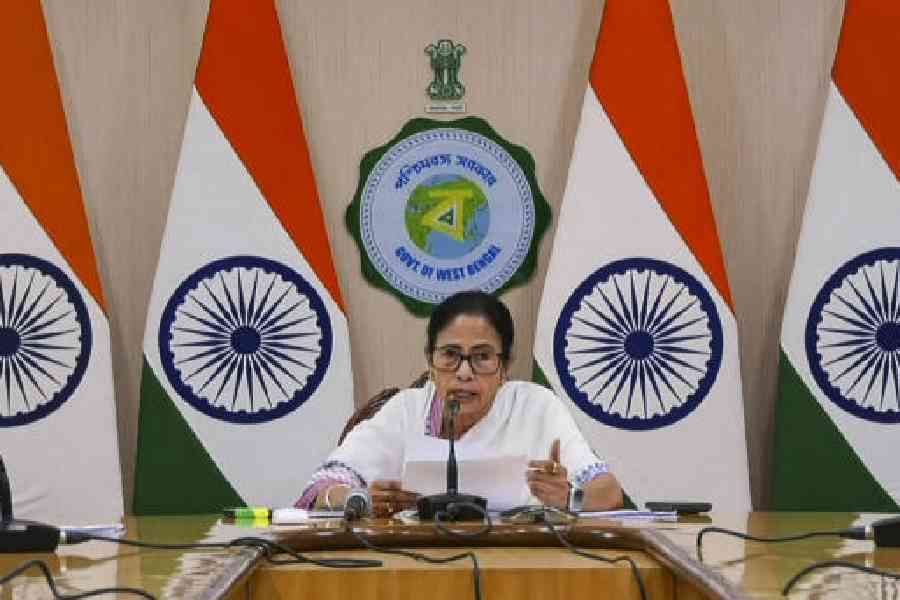A neutral community representative will be selected from each polling booth to engage with residents and identify local issues, the Bengal government said in a standard operating procedure (SOP) prepared to implement the Amader Para Amader Samadhan programme.
Chief minister Mamata Banerjee announced the outreach programme earlier this week.
The representative — a person without political affiliation — will sign a document finalising the local issues that will emerge after discussions with the residents.
A facilitator — a state government employee — will also sign the document, which will be the only source for the government to learn about issues that people have flagged.
Each booth will get ₹10 lakh to fix its problems.
Outreach camps will be set up from August 2 and run till November 3.
The Samadhan camps will run from 9am to 12.30pm, while the same venues will run Duare Sarkar camps in the afternoon.
The Amader Para Amader Samadhan programme, for which the state has allocated ₹8,000 crore, will identify local issues like a damaged stretch of road or a water supply problem and address it.
“We sometimes find that a neighbourhood needs only a tap or if a small stretch of a road is made people do not have to walk on slush...,” Mamata had said on Tuesday while spelling out the broad contours of the programme.
The bigger projects will continue separately, she said.
Following her announcement, the chief secretary held a meeting with senior officials of all districts, including Calcutta. The SOP was issued on Friday.
“It seems that the neutral community representative will play a key role in identifying the problems,” said a government official.
The SOP does not elaborate how the representative will be picked or what will happen if more than one person emerges as contenders for being the community representative.
Government sources said the grey area might allow people well connected to a local councillor or party leader to be picked as the representative.
The SOP says the representative should be someone amongst “prominent local persons (non-political), including retired teachers / government employees, SHG (self-help group) members etc. who is acceptable to the attendees in the camp”.
Once the venues for the camps are selected, they will be listed on a dedicated website. The dates will be announced for each location.
The chief minister had said that there would be one camp for three booths, but the SOP allows some restructuring.
It says there could be one camp for one polling booth in far-flung areas, while in a city one camp could include more than three booths.
Sources said there are over 80,000 polling booths in Bengal and over 4,700 of them are in Calcutta.
The government estimates there would be 27,000 camps during the campaign period.










